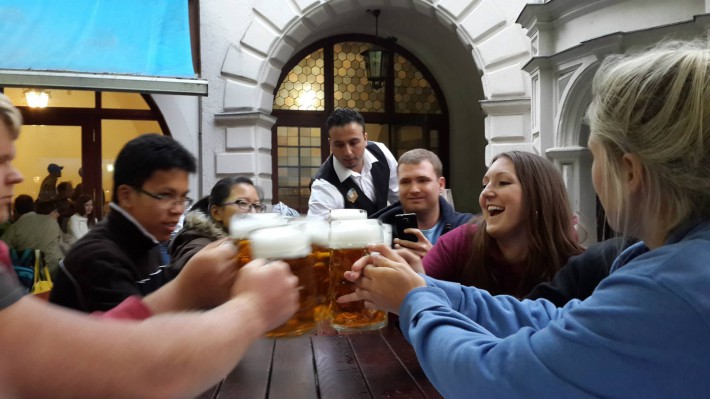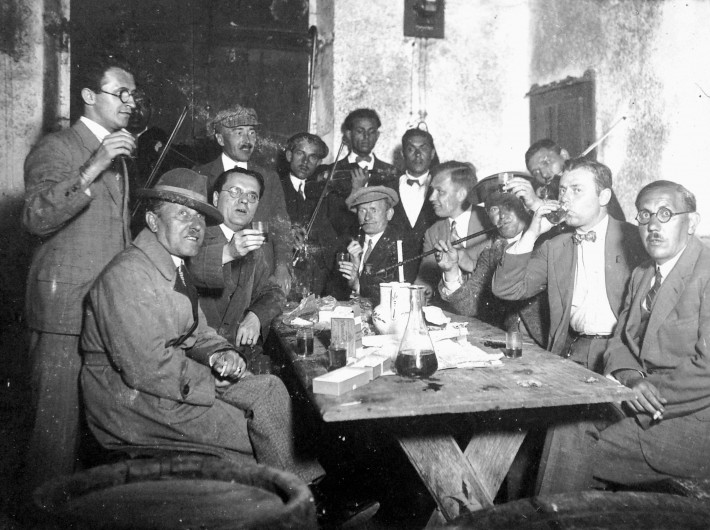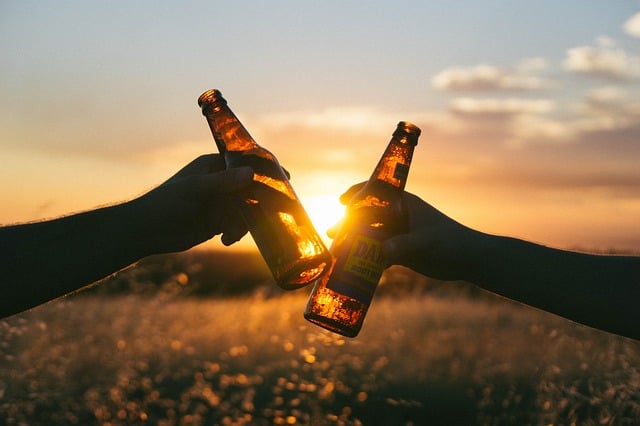The Many Sayings and Phrases to Cheers around the World
Photo via Pixabay
When travelling the world one of the best ways to get to know locals and learn about their culture is to sit down at a table, break bread and share a drink. Likewise, it is one of the most forthcoming ways people all over the world welcome a stranger. This sharing of food and beverages, very often alcoholic, as a way to bond is as old as human existence itself.
“Cheers” like “hamburger” and “Facebook” is recognised the world over, but as a traveller getting to know and using local phrases is always a plus. As almost every language has its own equivalent to cheers, learning the local version can be as useful as knowing “please” and “thank you”. Besides, you never know who might belly up to the bar next to you.
Makein Cheres
The phrase “makein cheres” was first recorded in the 12th century, becoming “what chere be with you” by the 14th, that then evolved to simply “chere”, and then “cheers” in the early 20th century. No matter what form the phrase took it has always meant the same thing: good health, glad tidings, best of luck. These wishes remain consistent for toasts everywhere.
Across the language groups of Europe, there are the well-known ones such as proust in German, salud in Spanish and santé in French. Skål is common all around Scandinavia except for the Fins who have kippis. Lithuanians say į sveikatą (ee-swa-taka), meaning good health, while in Moldova they say noroc (nor-oak), or essentially good luck. Almost everyone knows Ваше здоровье (vashee zda-ró-vye), but did you know that Russians very rarely use it, preferring more specialised toasts depending on the occasion?

Photo via Wikimedia
Bottoms up
China is home to a multitude of languages and dialects but the Mandarin 干杯 (gan bai) seems to have worked its way into most of them as well as becoming a loan to both Japanese and Korean (literally meaning up and down). While in Asia you’ll probably want to know mabuhay in the Philippines, do in Vietnam, and Aung Myin Par Say in Burmese. In the bars and on the beaches of Thailand where much drinking gets done, the most common phrase is Chok Dee, literally meaning good luck. Just be careful when locals start saying Chang Gaw (or Mot Gaw) meaning drink the glass empty and move onto the next one.
Learning a language? Check out our free placement test to see how your level measures up!
As a traveller in Africa, it might be best to learn the Swahili maisha marefu which will cover you in a number of countries. In India, “cheers” is used so often and in so many ways that saying cheeryus after a drink is a no-brainer. If you really want score some points with your host try saying a chees sahip kaleer in Hindi or gudalaaka in Assamese.
Although the Middle East isn’t normally thought of as a drinking destination, wishes for good health and prosperity are given before sharing a cup of tea as easily as a glass of whiskey. The basic Arabic fi-sih-tik will be served up across the region and kha sehat walary will cover you in any Pashto-speaking area. In Israel, Luk Chiem is shouted in Hebrew at weddings and celebrations. If, by chance though, you come across the rare Yiddish speaker and can pull Sei gesund out of your hat, you might get a nice shot of Passover vodka.

Photo via Wikimedia
Had we as a species followed Dr. Ludwig Zamenhof’s advice and taken up Esperanto as the universal language we could simply all use Gajan. This is, of course, only a smattering of the ways to offer best wishes when drinking, but it’s definitely a good start!



